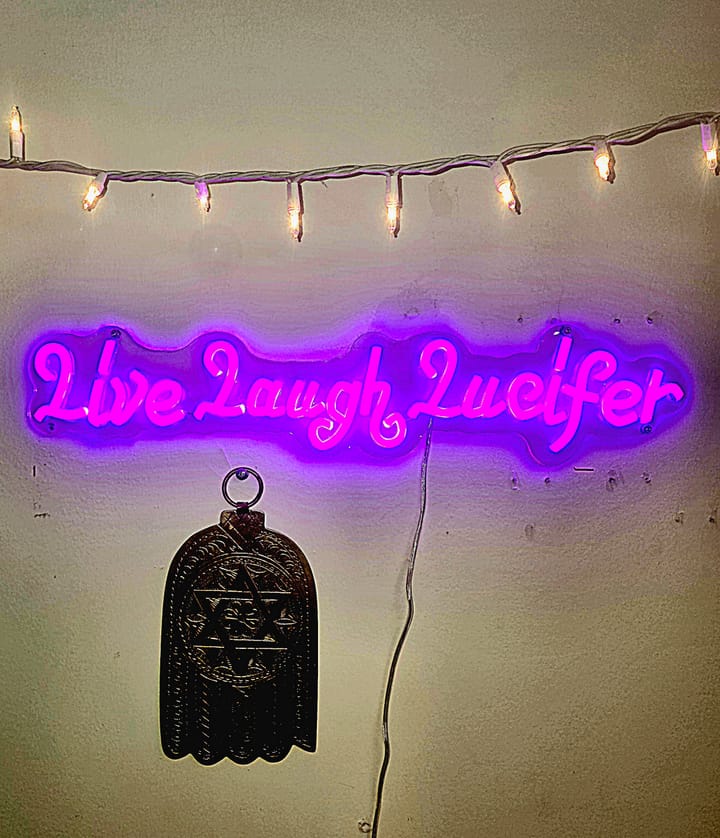A Found Family Model to Solve the Loneliness Epidemic
Or: Recreating Jewish Havurah Through a Queer Lens
When I was growing up, my family was part of a havurah ("fellowship" in Hebrew). To me at the time, that meant that I was a Jewish kid in a Jewish family and we went to events and had basement Halloween parties with other Jewish families who were part of the same synagogue. It was wonderful growing up with these people because they unintentionally fulfilled roles of an extended family that I don't have much of. One of the boys in the havurah was my first crush and eventually became my prom date. As I started attending high school, I often saw one of the mothers who was a teacher who worked there and she clearly had a soft spot for me. In a very large town of over 50,000 people in our historically odd, individualist American culture, the havurah made my life life resemble a little more like a small village where you were in closer proximity to your whole family.
Recently, I did some reading on havurah and was surprised to discover a number of things. First, that is particularly a Jewish-American program that was specifically created to instill and support Jewish identity in America post-20th century European immigration. Meaning, it's rooted in a Jewish identity that is specifically diasporic, something that I find very appealing. Secondly, that it was initially a counterculture concept that originated in the Reconstructionist Jewish movement.
Reform* and Conservative synagogues (or apparently, as other Jews call them, shuls because synagogue is actually a Greek word) quickly adopted havurah programs because of their obvious benefits. You're much more likely to attend services if you have other people to go with, after all. As someone who generally does not enjoy Reconstructionism due to its loose, hippie dippie unstructure, I was delighted to discover that one of my favorite parts of my Jewish upbringing was as radical as I turned out to be.
As part of this radicalism, I have spent the last year striving to bring a version of havurah into my adulthood. While I am far from the first person to discover the importance of queer found family through friction with my heteronormative birth family, I wish to build a model where cishet people can have strong, foundational found family if they need one as well. Found family should indeed be normalized so that we have more naturally strong local community to support and uplift us through life.
I believe emphasis on the model of the nuclear family is part of American culture's obsession with individuality, which just leads to isolation, emergency levels of loneliness, and ciswomen increasingly bearing the brunt of the labor inside and outside the household. We know from history that people are meant to live in small communities that work to support each other's needs, not in capitalist systems where you are supposed to make your own money to pay ever increasing rent/maintain your own house, purchase and cook all your own food, maintain your own car, clean your own house, do your own laundry, raise your own animals, and manage all your own emotional and sexual needs. And that's assuming you're not disabled, which an increasing number of Americans are. While long-term partners/spouses could certainly be an enormous help, as a single person not all of us have one, and two people can still experience a gap in knowledge or skills easily filled by other people in their lives.
For the last year, I have looked at several frameworks to get an idea of how I want to re-introduce havurah into my life. The first obvious one was polyamory. Polyamory has for decades served as a common model for queer relationships because it balks against the norms of a society that already rejects queer people, and more recently styles like "kitchen table" have risen to terminology and popularity. Then from a more justice-oriented perspective, I looked at a transformative justice organization named SOIL** and their concept of pods. From this angle of defunding the police, dismantling the prison industrial complex, and rehabilitating individuals who broke the law instead of perpetually oppressing them, I saw how diversifying one's close relations also provides inherent harm reduction.
On an executional level, I currently have two pod partners/life mates, one of whom I am queerplatonic with. This happened via me saying to both of them, "Hey I have this idea for our relationship, do you want to do this with me?" and both of them going "YEAH!" and then us elaborating details in later conversations. From my end, the intention is to link households and domestic concerns while maintaining separate living situations. Like in how other cultures one may do this with extended family, the idea is to factor proximity to one another when choosing new housing, serve as vital emotional support, act as emergency contacts, help with household repairs, share items such as toolboxes and streaming service subscriptions, and basically behave as family while not having biological relation. Down the line, I expect these pod partners among others in my havurah will help me raise my children.
Putting it this way, even with all these various definitions, what I am working toward with my pod partners is really not all that strange. It's just uncommon because Americans are so pushed toward self-reliance, first as an individual, then as a couple, and then as a family unit. We are raised toward the goals of owning expensive standalone single family homes and standalone expensive-to-own-and-maintain cars to use on now crumbling infrastructure in order to live in regions that are designed in ways that lack accessibility and de-center community.
What if we instead dreamed to live in ways that were more integrated to one another? What if we prized collaboration and interdependence? What if we saw that the recent popularity of polyamory is only happening in the US and that the transformative justice movement is only necessary because we have the largest prison population in the world? I believe all of these similar concepts are coming into prominence from different areas because we are already recognizing the core problems and imagining alternatives. Related to this, I believe that havurah was adopted so readily because Judaism is already predicated on larger community and it was antidote to American culture's threat to Jewish values. Gentile America now needs its own salve.
*I grew up Reform and continue to prefer its solemn, serious services with minor key music and emphasis on rabbinical leadership. Historical, but interesting side note: I came to realize recently that I have a lot of stylistic agreements for religious services with people who were raised Lutheran because the Reform movement started in early 19th century Germany and took a lot of influence from the Lutheran churches that largely surrounded it
**Shout out to my pod partner Amy, who introduced me to pods via her interest in restorative and transformative justice



